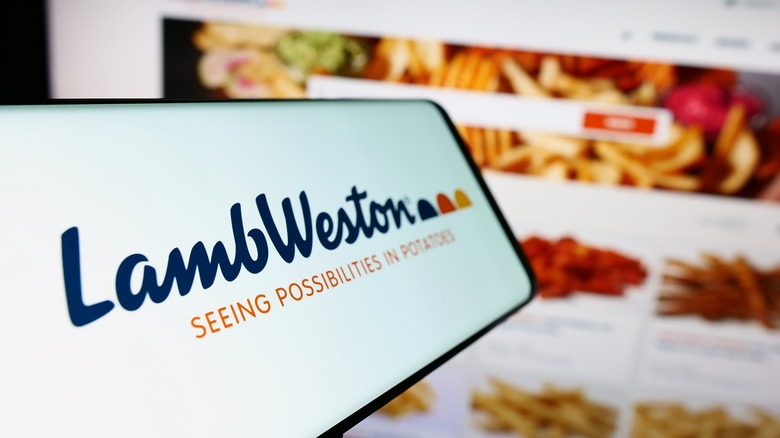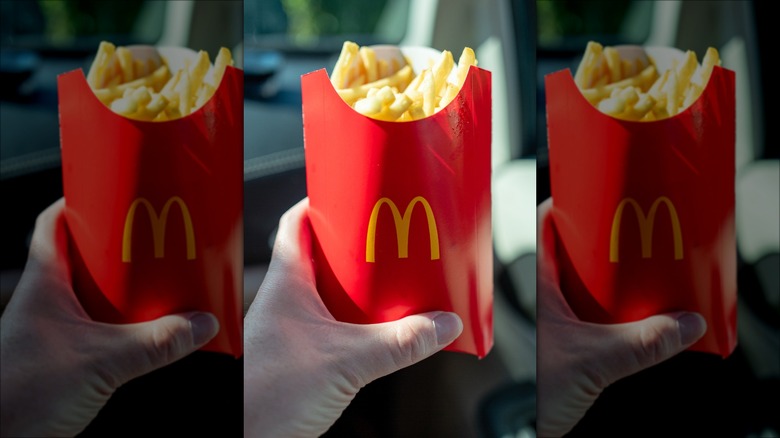80% Of French Fries Consumed In The US Come From One Source
Those who keep track of this sort of thing know that the health of McDonald's Corp. pretty much reflects the economic health of the public. If Micky D's suffers an economic downturn, then everyone and everything that relies on the burger giant, either for food or for business, feels the effects, too. Case in point? Lamb Weston. It's the country's largest French fry manufacturer, and it announced on October 1, 2024, that it would be closing a production plant in Washington due to falling fry sales. McDonald's, it seems, just isn't buying as many French fries from Lamb Weston as it used to, and now, 400 or so employees, or some 4% of the French fry giant's workforce, per CNN, will lose their jobs as if McDonald's itself had fired them.
CNN additionally reports that the McDonald's French fries account equals 13% of Lamb Weston's sales – the largest chunk of its business — though 80% of the French fry manufacturer's sales come from fast food chains, in general. And they — the other fast food and fast casual restaurant chains — ain't doing so hot. According to Inc.com, the fast food sector reported a 3.5% decline in the first quarter of 2024 and a 2.5% decline in the second quarter. But it isn't only fast food that's feeling the heat. Fast casual has its feet in the fire, too. Darden Restaurants, which owns The Olive Garden, a place where you can usually get your money's worth, reported a nearly 3% reduction in restaurant traffic in the past quarter.
What's happening in the French fry market?
It's a case study in the vulnerabilities of the market. It's also a case study in how people eat, meaning that although consumers can buy French fries in the supermarket and eat them at home, they're probably not going to. At least, they're not going to in the same numbers that they do when in a restaurant. Although inflation has hit grocery stores, too, it hasn't struck them as hard as it has the fast food market. It also doesn't help that the asking price for a single fast food fried spud costs the same as a five- or 10-pound bag of potatoes at the grocery store.
McDonald's has tried to counteract the effect by pushing some $5 new value meals. These include the burgers, fries, and drinks that customers have come to expect. However, the fries aren't Supersized. They're small. People won't pay for Supersize anymore.
And it's the same story for fast food chains like Pizza Hut, Popeye's, Burger King, and Wendy's, which began offering value meals, including fries. Of course, the fry sizes were reduced in those value meals, too, which doesn't much help manufacturers, like Lamb Weston.
Finally, the French fry giant claims that the Washington plant only accounts for 5% of its production output. The company estimates that its reshuffling efforts will net a $55 million pre-tax savings, per Lamb Weston. As for its future French fry sales, that remains to be seen.

